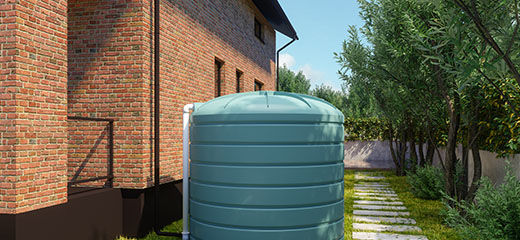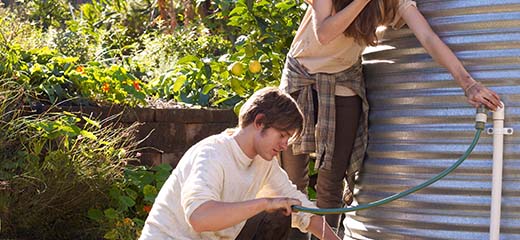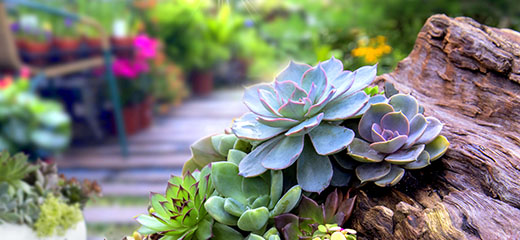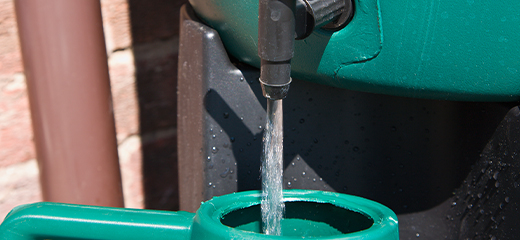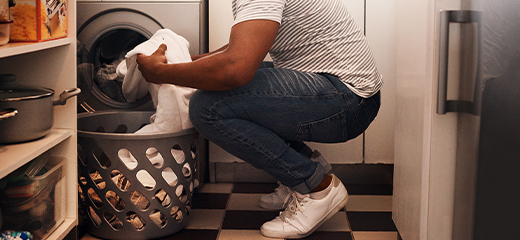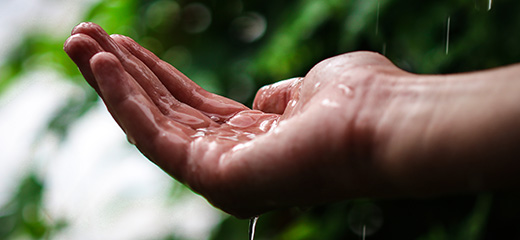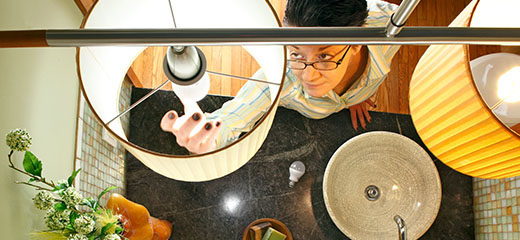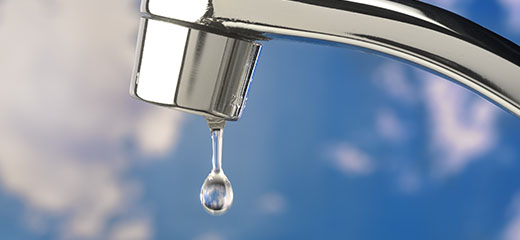
FAQs: Grey water harvesting
South Africa’s water supply is far from secure, leading to rising prices and municipalities encouraging homeowners to reduce their water consumption. One way to bring down your water bill without sacrificing your lifestyle is to reuse household water in other areas of the property. This process is called grey water harvesting.
If you’re thinking of using grey water harvesting on your property, you may have questions about how it works and what kind of savings you could expect. There are also a few areas that you should know before deciding on an option to meet your needs.
What is grey water?
Grey water is water that has already been used in the household but is safe to be reused in other areas of the home. Commonly used sources of grey water include washing machines, showers, baths, bathroom basins and even pool backwash water.
What is black water?
Black water is water that has not already been used in the household that is not safe to use elsewhere due to high levels of organic load and bacteria that may be present in the water. While the toilet is an understandable example, you might be surprised to hear that sink and dishwasher water is not considered safe for reuse.
Where can grey water be used?
The two biggest uses for grey water are the garden and toilet flushing, however it can also be used for cleaning floors, cars and even in the washing machine if you opt for a treatment system. In pool backwash systems, the water is left to settle with most of it being returned to the pool and the rest available for use in the garden or toilet.
Using grey water offers significant money savings for avid gardeners and what’s more your plants will thrive on the nutrients in the water. That said, grey water should not be used on edible plants, fruit and vegetables, and as grey water is alkaline, it should not be used for plants that require acidic soil.
Where should grey water not be used?
Grey water is classified as ‘non-potable’ water which means it should never be used for drinking, cooking or bathing.
How much could I save through grey water harvesting?
The answer to this question depends very much on your household, the type of system and how effectively your grey water is used. However, some water usage statistics could show you just how much you might save in your household.
- In South Africa, upwards of 30% of domestic water is used on gardens.
- You could be flushing as much as half of your inside water consumption down your toilet.
- Washing machines are typically the highest water using appliance in the home.
What are the grey water harvesting options?
Selecting a grey water harvesting option for your home depends very much on your reuse demand and your budget. Here are some ideas:
- Manual: This entails collecting your greywater as you use it, in a container such as a bucket. This greywater is then carried to the area where you wish to use it.
- Direct piping: In this solution, a pipe is connected from the water source, such as the washing machine, to the area where it is needed such as a nearby garden bed. It’s worth noting that a washing machine has its own pump but it is only strong enough to go small distances.
- Simple storage: This is the first grey water harvesting option to make use of a fixed container. These containers range from 50 to 100 litres and are connected to the water source with piping. These systems typically include a macro filter which catches hair and other solid material.
- Sophisticated storage: These are larger systems which include some form of treatment system which enables the water to be stored for longer. Very often, pumps are included in the system to enable enough water pressure for the water to travel to where it is to be used.
- Backwash tanks: Allow you to clean your pool water and return most of it to the pool without wasting. Commonly 500 litres or larger, the pool water enters the tank during a backwash cycle and is then left to settle overnight. The clean water can then be returned to the pool while the dirty water can be diverted to the garden.
What about chemicals in the grey water?
This is probably the biggest concern if you are hoping to use your grey water in your garden and for cleaning. While treatment systems will lower the chemicals in the grey water, there are other ways to lower this danger.
- Change to biodegradable or environment-friendly detergents, personal care and beauty products.
- Dilute your grey water with clean water.
How safe is grey water?
This depends very much on whether your grey water is treated or not and how long it is stored for. Untreated water must be used within 24 hours of collection. Depending on the type of system used, treated water can last for much longer. It’s important to speak to your supplier about the length of time their treatment allows the grey water to be safely used. Remember also not to use grey water near any edible food stuffs or areas where children and pets may play, even if treated.
If you intend to handle the grey water yourself, make sure to wear protective gloves and keep the water away from your face.

